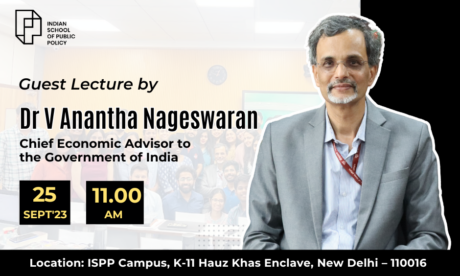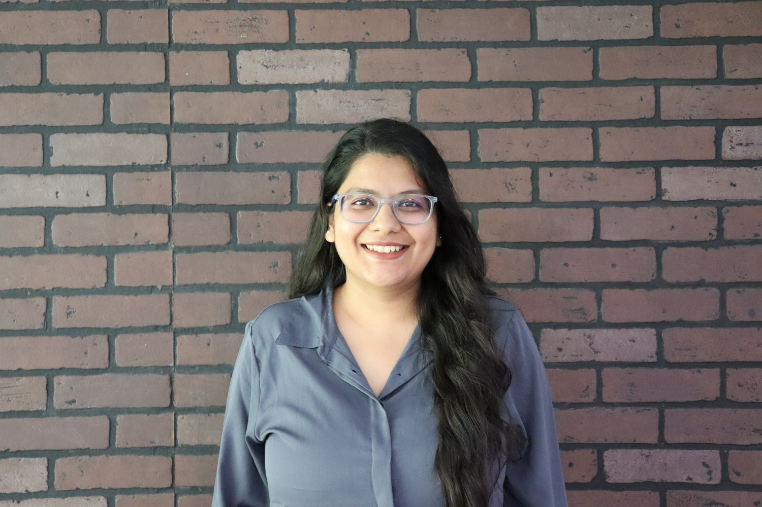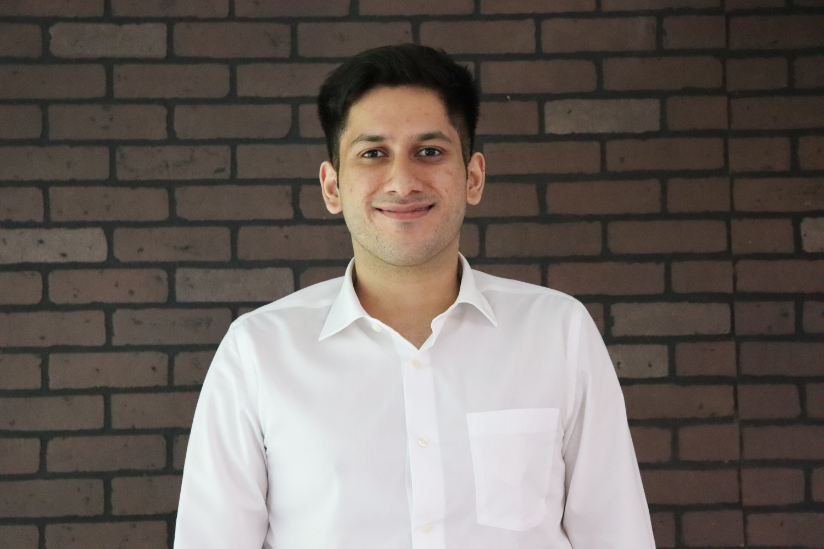Shift from greed economy to green economy: A lecture by Dr V Anantha Nageswaran

Indian School of Public Policy (ISPP) had the distinct honour of welcoming a renowned economist, visionary leader and distinguished guest who stands as a beacon of expertise and leadership in the realm of economics. We had the wonderful opportunity of getting graced by none other than Dr V. Anantha Nageswaran, the Chief Economic Advisor to the Government of India. He delivered a talk on the topic “Navigating the Present for a Sustainable Future.”
Dr Nageswaran started off by discussing India’s growth story. The government has been focusing on sustaining growth in the ‘medium-term,’ with our growth being steady at around 6.5%. Banking, non-banking and corporates now have healthy balance sheets. Next, he discussed the tale of successive shocks that challenged the Indian economy in the past decade. Along with this, we also looked at India’s progress over the last 9 years and highlighted the magnitude and influence of COVID-19 on the economic trajectories of India.
Dr Nageswaran highlighted the reforms that brought us here: Infrastructure, Banking reforms, Digital public goods, Trade policy, Investment, and Ease of doing business. According to him, “India did not industrialise enough because India did not have the physical infrastructure.” Also, “a simple banking penetration takes on an average 48 years.”
Talking about the Product Linked Incentive (PLI) scheme, a general question that arises is this: We are just assembling phones in India. Where is the value addition? To this, he clarified, “You must start somewhere. This criticism is premature.”
He also brought in the concept of ‘7 in 7’, that is, India should achieve a $7 Trillion economy in 7 years. For this to achieve, we need a nominal GDP growth rate of 10% every year which is achievable for a growing economy like India. Then, he talked about the importance of the right education, skilling, and knowledge to reap the benefits of our demographic dividend. “Over the next 25 years globally, one in five working-age persons will live in India.”
Dr Nageswaran discussed the complexity of policy making, stating drafting of policies is a ‘wicked problem.’ It is because of the asymmetric nature of human beings. Policy can hurt, but it may not help. So, one must always be careful in dealing with such complex issues. Understanding complexities is a more critical attribute in drafting policies.
Coming from the heart of policy making and being an exemplary policy professional, he shared some great insights on what the process entails. “Policy making is also an entrepreneurial exercise. It is also about risk-taking. You will have imperfect information. Still, you must decide.”
To conclude, Dr Nageswaran quoted, “Labels should describe who you are. It should not define who you are.” The entire session highlighted on expanding and deconstructing the ability of the scholars to think, have an entrepreneurial mindset and have empathy to develop adequate and appropriate policies for the be profound policy professionals of the future.
Sristy Agarwal and Shreshth Sinha
PDM Scholar Class of 2024

Sristy Agarwal our scholar of Post Graduate Programme in Public Policy, Design & Management is an avid learner with a Computer Science & Engineering background. She excelled as a Software Developer at Robert Bosch for 3.5 years while simultaneously pursuing UPSC CSE preparations, completing two mains exams after two years of intensive effort. Now shifting gears, Sristy is embracing a career shift toward public policy with ISPP, aiming to tackle global challenges on a broader scale.

Shreshth Sinha is a strategic and agile thinker who thrives to deal with ambiguous and complex problems and effectively communicate solutions. Shreshth is a graduate in the discipline of legal studies which has enabled him to understand processes of governance with regard to regulation and policy which has further helped him in actualizing solutions to the problems that lie at ground level. He is a policy enthusiast fascinated by the intersection of law, policy and governance and harbors keen interest in international relations, climate change advocacy and developmental economics.


